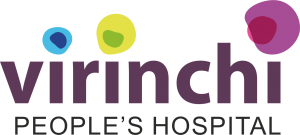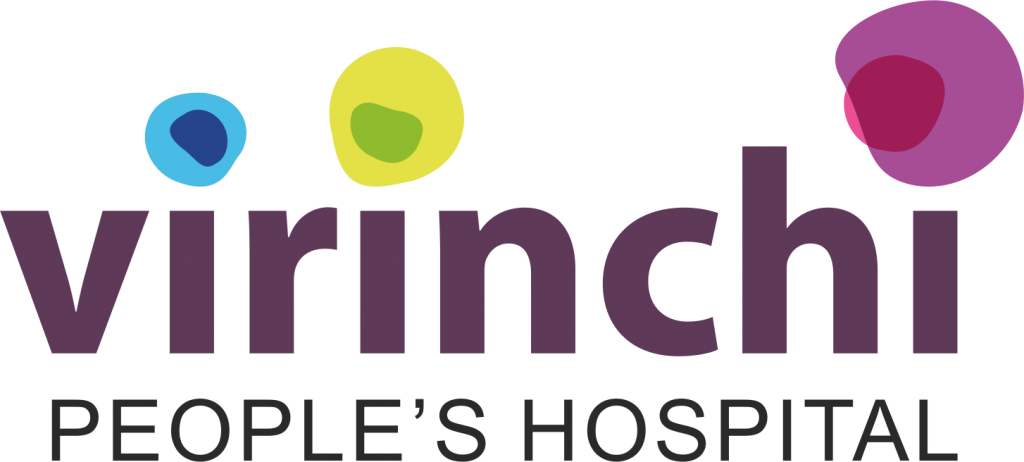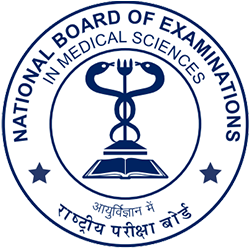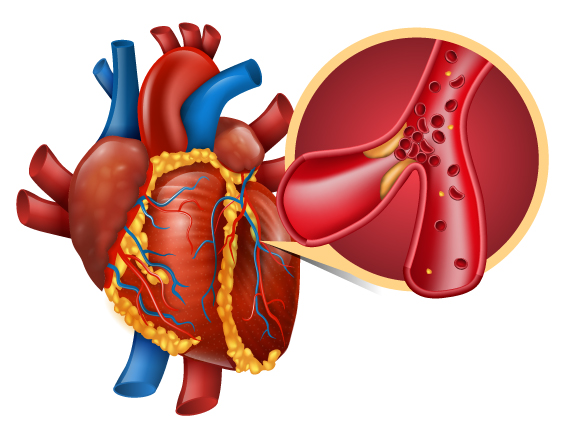A serious medical emergency wherein blood supply to the heart muscles is blocked leading to injury or death of heart cells. The condition is popularly known as Heart Attack.
What are the symptoms of Heart Attack?
- Men – Chest pain spreading to shoulder, arm, back, neck or jaw
- Women – Pain in neck pain, arm pain or feel tired with or without chest pain
- Indigestion & Abdominal Pain
- Shortness of breath
- Heartburn like feel or gastric complaint
- Shortness of breath
- Nausea
- Feeling faint / Light-headedness/Feeling dizzy
- A cold sweat
- Feeling tired
What are the complications of Heart Attack?
- Heart failure
- Irregular heartbeat
- Cardiogenic shock
- Sudden cardiac arrest
What are the risk factors of Heart Attack ?
- Age above 45
- Sedentary Lifestyle
- Family history
- Obesity
- Diabetes
- Mental Stress
- Metabolic syndrome
- Tobacco & alcohol usage
- Use of Illicit drugs
- Use of oral contraceptive pills
- Endometrosis in women
- Use of non-steroidal anti-inflammatory drugs (NSAIDs)
- Rheumatoid arthritis or lupus
- High blood pressure
- High blood pressure during pregnancy
- High blood cholesterol or triglyceride levels
- Air pollution
- Bacterial and Viral Infections
What are the causes of Heart Attack?
- Atherosclerosis – due to errors in metabolism and inflammation
- Coronary artery contraction – due to illicit drug or tobacco usage
- Spontaneous coronary artery dissection (SCAD)
- Incorrect/Failure of surgical procedures- PCI or CABG
- Diet rich in saturated and trans fat
- Genetic Factors – 27 Genetic variants are associated with MI
What are the preventive measures to avoid heart attack?
- Adherence to medication for existing or previous heart conditions
- Life Style Changes – Regular exercises, Good dietary Practices, Quitting alcohol & Tobacco
- Manging Stress
- Adherence to medication for controlling Blood pressure, Diabetes, Inflammation and autoimmune conditions
What are the management & treatment options available for heart attack?
- Medication – Statins, Fibrinolytics, Anticoagulants, Inotropic agents & Antiplatelet Meds, (ACE) inhibitors, Beta Blockers, etc.
- Minimally Invasive Interventions – PCI-Angioplasty & Stenting, Atherectomy
- Invasive Surgeries – Coronary Artery Bypass Graft (CABG)
- Minimally Invasive surgeries – MICS-CABG
- Intra-aortic balloon pump
- Extracorporeal Membrane Oxygenation (ECMO)
How is Heart Attack diagnosed ?
- Membrane Oxygenation (ECMO)
- Blood Tests
- Endocardiography
- Cardiac Biomarker Analysis
- Metabolic & Lipid Profiling
- Coronary angiogram
- Imaging Investigations – X-Ray, MD-CT, MPI, PET, Angiography & Echocardiography
What lifestyle modifications recommended for MI patients?
- Low-fat and low-salt diet
- Membrane Oxygenation (ECMO)
- Quitting smoking tobacco
- Quitting smoking alcohol
- Vaccination against viral and bacterial infections
- Regular Exercise
- Active Life Style with increased physical activity
Does cardiac rehabilitation help MI patients ?
Cardiac rehabilitation does benefit substantially affected MI patients through various programs
- Exercise Counselling
- Exercise Training
- Education on the condition
- Education on the life style modifications
- Education on the Dietary practices and modifications
- Counselling for Stress Management & Depression
- Routine Medical evaluation






